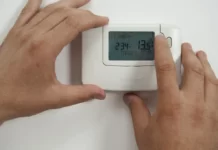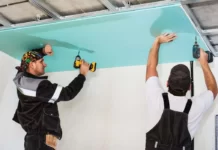Dealing with a mouse infestation in your home can be a frustrating and unsanitary problem. While chemical-based solutions are available, many prefer natural methods to eliminate mice. Not only are these remedies safer for your family and pets, but they are also more environmentally friendly.
Before we start looking for perfect strategies to eliminate the mice infestation, we have first to consider some actions such as:
Actions to Consider First
1. Identify Signs of Infestation
• Look for common signs of mice infestation, such as droppings, gnawed materials, grease marks, or a musky odor.
• Inspect areas where mice are likely to hide, including basements, attics, crawl spaces, and kitchen cabinets.
2. Remove Food and Water Sources
• Store your food in sturdy, airtight containers to prevent mice from accessing it.
• Clean up food spills promptly and avoid leaving pet food or water bowls out overnight.
• Seal garbage bins tightly and ensure they are placed away from the house.
Mice not only damage things, but they can also be dangerous to your health. Getting rid of mice quickly is important to stop more problems from happening. This guide will talk about effective ways to deal with mice, from getting rid of them to keeping them from returning. Doing these things can get you back in charge of your home and rid it of rodents. Let’s talk about how to fight a mouse problem. This guide will show you how to eliminate mice in your house without chemicals. By doing these things, you can get rid of mice without using strong chemicals or hiring a professional exterminator. Let’s start and find out how to keep mice out of your house naturally.
Home Remedies on How to Get Rid of Mice
1. Seal Entry Points
• Inspect your home for any openings or cracks where mice can enter.
• Use steel wool or caulk to seal gaps around windows, doors, pipes, and utility openings.
• Pay special attention to areas where pipes or cables enter your home.
2. Keep your Home Clean
• Eliminate food sources by storing pantry items in airtight containers.
• Clean up spills promptly and avoid leaving food out overnight.
• Sweep and vacuum regularly, paying attention to areas where crumbs may accumulate.
3. Peppermint Oil and Other Natural Repellents
• Soak cotton balls in peppermint oil and place them near areas where mice are active.
• Mice dislike the strong scent of peppermint and will avoid areas treated with it.
• Refresh the cotton balls with peppermint oil regularly to maintain their effectiveness.
• Use natural repellents like dried mint leaves, cloves, or cayenne pepper.
• Place these repellents in areas frequented by mice, such as corners, cupboards, or entry points.
• Replace or refresh the repellents periodically to ensure their potency.
• Place these deterrents near mice activity areas to discourage them from nesting or exploring.
4. Humane Traps
• Set up humane traps to catch mice without harming them.
• Bait the traps with peanut butter or a small piece of cheese.
• Release captured mice far from your home, preferably in a wooded area.
5. Adopt a Cat
Adopting a cat can be a practical and natural solution for keeping mice away from your home. Cats are natural hunters with a strong instinct to chase and catch small prey like mice.
• Cats are natural hunters and can help keep mice away.
• Consider adopting a cat if you are open to having a pet that fits your lifestyle.
• Remember that adopting a cat should be a long-term commitment and not solely based on its ability to deter mice. Cats require love, attention, and care, so ensure you can provide a loving home for a feline companion. With the right cat and proper care, you can enjoy the benefits of a mouse-free home and the companionship of a furry friend.
6. Seek Professional Assistance
• If the infestation persists or you are uncomfortable dealing with mice alone, consider contacting a professional pest control service.
• Pest control professionals have the expertise and tools to handle severe infestations safely and effectively.
7. Implement Preventive Measures
• Keep your home clean and clutter-free to eliminate potential hiding spots for mice.
• Regularly inspect and maintain your property, including repairing damaged screens, sealing cracks, and maintaining proper ventilation.
• Trim vegetation and shrubs near your home to reduce hiding places for mice.
8. Create a DIY Mouse Deterrent
Examples and steps to prepare diy natural mice deterrents:
Natural deterrents can be a safe and effective way to keep mice away from home when dealing with a mouse infestation. DIY mouse deterrents are easy to make and often utilize common household items. This section will explore some examples of DIY mouse deterrents along with step-by-step instructions. By implementing these methods, you can create a barrier that deters mice and helps protect your home.
1. Peppermint Oil Spray:
Ingredients:
• Peppermint essential oil
• Water
• Spray bottle
Steps:
a) Fill a spray bottle with water, leaving some room at the top.
b) Add 10-15 drops of peppermint essential oil to the bottle.
c) Secure the spray bottle cap and shake well to mix the ingredients.
d) Spray the mixture along baseboards, entry points, and areas where mice are active.
e) Reapply the spray every few days or when the scent fades.
2. Cayenne Pepper Barrier:
Ingredients:
• Cayenne pepper powder
• Protective gloves
• Cotton balls
• Small sachets or pouches
Steps:
a) Put on protective gloves to avoid irritation from the cayenne pepper.
b) Sprinkle cayenne pepper powder along entry points, cracks, and other areas frequented by mice. c) Place cotton balls soaked in cayenne pepper oil in small sachets or pouches.
d) Position the sachets near mouse activity areas or their known paths.
e) Regularly replace or refresh the pepper and oil-soaked cotton balls to maintain effectiveness.
3. Ammonia-Soaked Rags:
Ingredients:
• Ammonia
• Rags or cloth pieces
• Sealable plastic bags
Steps:
a) Pour ammonia into a sealable plastic bag.
b) Place rags or cloth pieces into the bag and seal it tightly.
c) Allow the rags to soak in the ammonia overnight or overnight.
d) Remove the rags from the bag and place them near mouse entry points, nests, or hiding spots.
e) Replace the ammonia-soaked rags every few days or when the scent diminishes.
4. DIY Vinegar Spray:
Vinegar has a strong odor that deters mice and helps mask their scent trails.
Ingredients:
• White vinegar
• Water
• Spray bottle
Steps:
a) Fill a spray bottle with equal parts white vinegar and water.
b) Shake the bottle to mix the ingredients thoroughly.
c) Spray the mixture along baseboards, corners, and areas where mice are active.
d) Reapply the spray every few days to maintain the vinegar scent.
5. Mothballs:
Mothballs can typically be purchased from various retail stores and online platforms.
Note: Mothballs should be used cautiously and kept away from your children and pets.
Steps:
a) Place mothballs you buy near entry points, crawl spaces, or other areas with mouse activity.
b) follow the manufacturer’s instructions for usage and placement.
c) Replace the mothballs regularly to maintain their potency.
Conclusion
DIY mouse repellents are a good and natural way to keep mice from entering your home. You can eliminate mice with these home remedies using peppermint oil spray, cayenne pepper barriers, ammonia-soaked rags, vinegar spray, or mothballs. Remember to refresh or change the deterrents regularly to make sure they keep working. Using these do-it-yourself tips, you can keep mice out of your house and pest-free.
So you understand how to get rid of mice naturally? Getting rid of mice is safer and better for the environment. You can get rid of mice in your home by using these home treatments, such as sealing entry points, keeping things clean, using peppermint oil, natural repellents, DIY mouse deterrents, humane traps, or even getting a cat. Remember that if you want to get rid of mice properly, you must be patient and consistent. With these ways, you can eliminate mice and other pests in your home.














